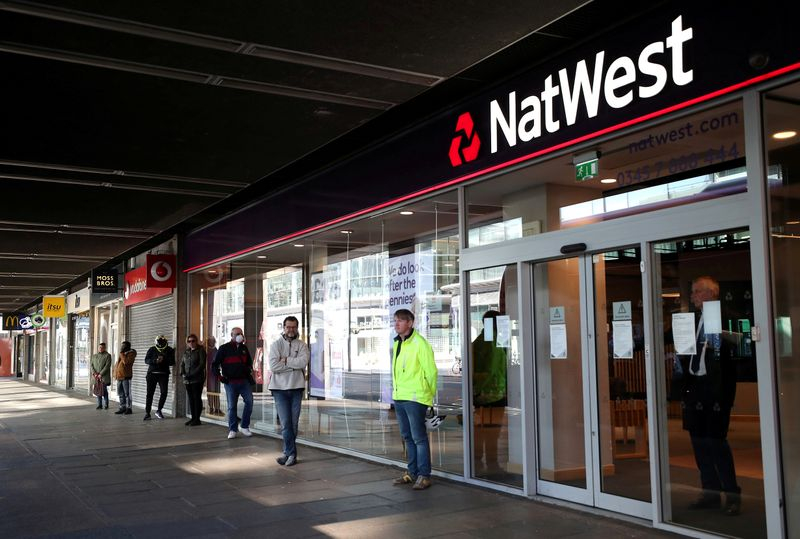NatWest returns to profit after releasing cash for bad loans By Reuters

By Iain Withers
LONDON (Reuters) -British lender NatWest returned to profit in the first quarter after joining rivals in releasing some of the provisions it had set aside to cover expected pandemic-related bad loans but warned a money laundering case could trigger a big bill.
NatWest CEO Alison Rose’s efforts to clean up NatWest’s image – including ditching the group’s scandal-tainted Royal Bank of Scotland (LON:NWG) name – hit a setback last month when regulators launched criminal money laundering charges against it.
Prosecutors at the Financial Conduct Authority allege the state-backed bank failed to detect suspicious activity by a client that deposited 365 million pounds in its accounts over five years, of which 264 million was in cash. If convicted, it could face an unlimited fine.
NatWest said on Thursday this could lead “to further substantial costs and the recognition of provisions”.
The looming court case — an initial court date has been set for May 26 — comes as NatWest reported a pre-tax profit of 946 million pounds ($1.32 billion), almost double an average of analyst forecasts. The bank made a 519 million pound pre-tax profit in the same period last year.
Like HSBC and Lloyds (LON:LLOY), NatWest’s profits were boosted by a net impairment release, of 102 million pounds. Analysts had forecast an extra charge of 251 million pounds.
The bank – which remains 60% taxpayer-owned following a government bailout in the 2007-09 financial crisis – had slumped to a 351 million pound pre-tax loss in 2020.
Rose said unpaid loans due to the pandemic remained low and vaccine rollouts and reduced lockdowns had given “reasons for optimism”.
“However, there is continuing uncertainty for our economy and for many of our customers as a result of COVID-19,” Rose said.
Banks across the industry saw their finances dented by the pandemic in 2020, but NatWest was a relative outlier in falling to an annual loss.
The domestically-focused lender’s income was hit particularly hard by a household spending crunch, while it missed out on the boosts Barclays (LON:BARC) and HSBC got from larger investment banks with an international footprint.
In a bid to turn things around, Rose laid out plans to axe further costs in February, including winding down its under-performing Irish arm Ulster Bank.
NatWest bought back 1.1 billion pounds worth of stock from the government to reduce its stake from 62% last month, cutting its core capital buffer to 18.2% from 18.5%.
The bank’s deposits jumped by a further 21.6 billion pounds over the quarter as customers continued to rein in spending, while it granted 9.6 billion pounds of new mortgages amid an ongoing housebuying boom.
($1 = 0.7165 pounds)

